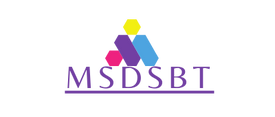What Steps Can You Take Today to Boost Your Career?
In today’s fast-paced and competitive job market, standing out and advancing in your career requires a combination of strategic planning, skill development, and a proactive mindset. Whether you’re just starting out, looking for a promotion, or considering a career change, taking intentional steps now can have a long-term impact on your professional success. This article will explore actionable steps you can take today to boost your career and achieve your professional goals.
1. Set Clear Career Goals
The first step in boosting your career is to define where you want to go. Setting clear, specific career goals helps you stay focused and motivated. Start by asking yourself:
- Where do I want to be in 1, 3, or 5 years?
- What kind of role or position do I want to hold?
- What skills or experiences do I need to acquire to reach my goals?
Once you have a clear idea of where you want to go, break down your long-term goals into smaller, achievable steps. For example, if you aim to become a manager, you could set short-term goals such as improving your leadership skills, gaining experience in project management, or mentoring others.
2. Develop New Skills
The job market is always evolving, and continuous learning is crucial to staying competitive. Identify the skills that are in demand in your industry and focus on developing them. Some ways to do this include:
- Online courses: Platforms like Coursera, LinkedIn Learning, and Udemy offer courses in a variety of fields. You can find courses related to leadership, technical skills, digital marketing, data analysis, or project management.
- Certifications: Earning industry-specific certifications can boost your credibility and make you more attractive to employers.
- Workshops and webinars: Attend live events to expand your knowledge and stay updated with industry trends.
3. Expand Your Network
Networking is one of the most powerful tools you can use to advance your career. Building relationships with others in your industry can lead to new job opportunities, partnerships, and mentorship. Here are some ways to expand your network:
- LinkedIn: Ensure your LinkedIn profile is up-to-date, professional, and highlights your key accomplishments. Connect with colleagues, industry professionals, and recruiters to stay visible.
- Industry events: Attend conferences, workshops, and meetups related to your field. Networking in person can foster stronger, more meaningful connections.
- Professional organizations: Join professional groups and associations in your industry. Becoming a member can open doors to events, resources, and networking opportunities.
- Mentorship: Find a mentor who can guide you and offer career advice. Additionally, consider becoming a mentor to others, as this can help you build leadership skills.
4. Enhance Your Personal Brand
Your personal brand is how you present yourself to the world, both online and offline. Building a strong personal brand can help you stand out in your field and attract career opportunities. Here are a few steps you can take to enhance your personal brand:
- Showcase your expertise: Start a blog or contribute articles to industry publications. Share your insights and demonstrate thought leadership in your area of expertise.
- Engage on social media: Regularly engage with industry-related content on platforms like LinkedIn and Twitter. Share relevant articles, comment on discussions, and connect with industry leaders.
- Create an online portfolio: If applicable to your career, create a portfolio that showcases your work, projects, or achievements. A well-curated portfolio can be an excellent tool when applying for jobs or seeking freelance opportunities.
5. Seek Out New Challenges
Sometimes, boosting your career requires stepping outside your comfort zone and taking on new challenges. If you’re feeling stagnant in your current role, look for opportunities to grow by volunteering for new projects or responsibilities. Here’s how you can challenge yourself:
- Cross-functional projects: Take on tasks that involve working with other departments or teams. This can help you develop new skills and showcase your versatility.
- Leadership opportunities: Even if you’re not in a management role, seek out leadership opportunities. Lead a team on a project or mentor a colleague. These experiences will help you develop valuable leadership and communication skills.
- Work on high-visibility tasks: Volunteer for assignments that will put you in front of key stakeholders or decision-makers. This will help you gain recognition and visibility within the company.
6. Strengthen Your Soft Skills
While technical skills are important, soft skills such as communication, problem-solving, and emotional intelligence are equally crucial for career advancement. Here’s how you can develop your soft skills:
- Communication: Whether you’re presenting to a group or engaging in one-on-one discussions, strong communication skills are vital. Practice public speaking, writing clear emails, and active listening.
- Time management: Being able to effectively manage your time and prioritize tasks is crucial for career success. Use tools like task managers, calendars, and productivity apps to help stay organized and efficient.
- Adaptability: In a constantly changing work environment, being adaptable is key. Take on new tasks, embrace changes, and learn to navigate challenges with a positive attitude.
- Emotional intelligence: Work on understanding and managing your emotions, as well as empathizing with others. High emotional intelligence is associated with better leadership and interpersonal relationships.
7. Ask for Feedback
Receiving constructive feedback is a powerful way to improve and grow in your career. It can help you identify areas for improvement and give you a better understanding of how others perceive your strengths and weaknesses. Here’s how to effectively seek feedback:
- Ask your manager: Regularly request feedback from your manager or supervisor about your performance. Focus on areas where you can improve and ask for suggestions on how to grow.
- Peer feedback: Don’t just rely on feedback from supervisors. Seek feedback from colleagues and team members who work closely with you and can offer insights into your work habits, communication style, and overall performance.
- Self-reflection: Regularly reflect on your own performance and identify areas where you feel you could improve. Self-awareness is the first step to meaningful self-improvement.
8. Stay Informed About Industry Trends
Being aware of the latest trends and developments in your industry is essential for staying competitive and informed. Here are some ways to keep up with industry news:
- Read industry publications: Subscribe to newsletters, journals, and blogs that cover the latest news, research, and trends in your field.
- Listen to podcasts: Many professionals and experts in various industries host podcasts that provide valuable insights and discussions. Listening to podcasts during your commute or workout can be an easy way to stay informed.
- Join online communities: Participate in online forums, groups, and social media communities where industry professionals share news, opinions, and resources.
9. Take Care of Your Well-being
Your career success is closely linked to your overall well-being. To be at your best professionally, it’s essential to take care of yourself physically, mentally, and emotionally. Here’s how you can prioritize your well-being:
- Maintain work-life balance: Avoid burnout by setting boundaries between work and personal time. Make time for hobbies, exercise, socializing, and relaxation.
- Get enough rest: Adequate sleep is crucial for cognitive function, decision-making, and overall health. Prioritize sleep to improve your productivity and performance at work.
- Manage stress: Find healthy ways to manage stress, such as exercising, practicing mindfulness, or engaging in activities that bring you joy and relaxation.
10. Consider Professional Coaching or Counseling
If you’re feeling stuck or uncertain about the next steps in your career, working with a career coach or counselor can provide clarity and guidance. A professional can help you set clear career goals, develop strategies for growth, and identify potential roadblocks that might be holding you back.
Conclusion: Take Action Now
Boosting your career doesn’t happen overnight, but by taking small, deliberate actions each day, you can make significant progress toward your professional goals. Whether it’s developing new skills, expanding your network, seeking feedback, or enhancing your personal brand, every step you take today can have a lasting impact on your career success. Remember, the key is to stay proactive, remain adaptable, and continue investing in your growth.
By committing to these steps, you’ll be better equipped to navigate your career journey with confidence and achieve the success you desire.

